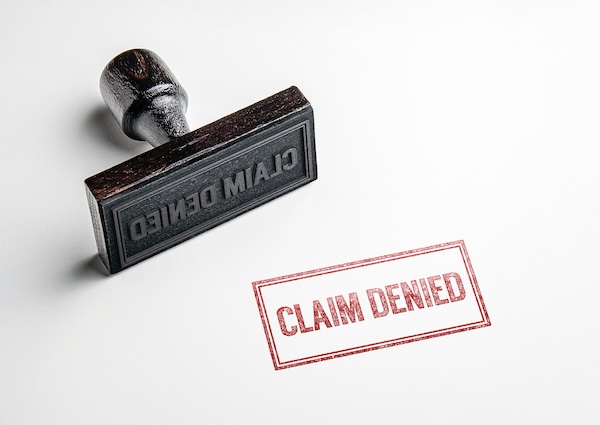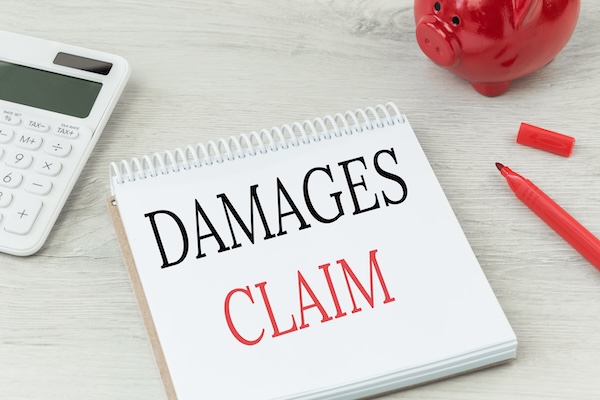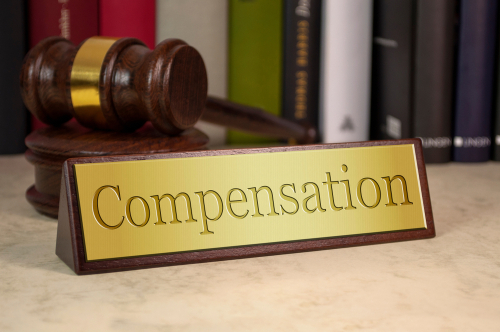The Unexpected Battle After a Loss
When you’re dealing with the aftermath of an accident, disaster, or personal loss, the last thing you expect is to fight your own insurance company. But for many policyholders, that’s exactly what happens. Whether you’re dealing with homeowners insurance, personal insurance, business insurance, or vehicle insurance, insurance companies often look for ways to undervalue your claim and protect their bottom line. If you’ve experienced this firsthand, speaking with a personal injury lawyer could be the best first step toward protecting your rights and getting the compensation you deserve.
Understanding Insurance Companies’ Priorities
Insurance companies are, first and foremost, businesses. Their priority is to manage risk and maximize profit. Unfortunately, that can mean minimizing what they pay out to policyholders. When you file a claim, whether for property damage, medical bills, or lost belongings, the insurance company may employ a variety of tactics to reduce the payout. This can include invoking fine print in your insurance policy, applying aggressive depreciation schedules, or claiming that certain losses aren’t covered under your current coverage.
Common Tactics in Auto Insurance Claims
In auto insurance claims, one common strategy is to assign a low actual cash value to your car, even if it was in good condition prior to an accident. Insurance companies often use outdated or lowball valuations to determine what your vehicle was worth, effectively reducing the amount you receive. Additionally, they may attempt to deny parts of the claim by asserting that damage was preexisting or not severe enough to warrant repair. Sometimes they suggest aftermarket parts instead of original manufacturer components, which may not restore the vehicle to its prior state.
Undervaluation in Homeowners Insurance Claims
With homeowners insurance, they might blame flooding or wear and tear to avoid paying for repairs after a storm. Insurers might argue that damage is due to poor maintenance rather than a covered incident, or suggest that you didn’t take appropriate preventative measures. Even in situations where you’ve documented the incident thoroughly, they might push back with alternative interpretations of what caused the damage, using vague policy language to their advantage.
Personal Insurance and Depreciation Tricks
In personal insurance situations—such as a loss of personal belongings—insurers may argue that items have depreciated significantly, regardless of their actual condition or market value. For example, electronics or furniture just a few years old might be valued at a fraction of their original price, even if they were well-maintained. Insurance companies often use broad depreciation charts that do not consider the real usability or resale value of your belongings.
Business Insurance: Complex Challenges
For those with business insurance, the strategies can be even more complex. Insurance companies may dissect your policy and categorize damages under exclusions to avoid liability. They may argue that losses are due to operational issues rather than covered incidents. Furthermore, they may delay paying out on claims for business interruption by questioning your revenue figures or asking for extensive financial documentation, sometimes beyond what’s reasonable.
Issues with Umbrella Policies
Even with an umbrella policy designed to provide extra protection, insurers can delay or dispute coverage. They often argue that your primary insurance must be fully exhausted before umbrella coverage applies, even if your loss clearly surpasses the primary policy limits. This can result in lengthy delays and partial payments that fall short of your expectations.
Life Insurance and Annuity Delays
When it comes to life insurance or annuities, beneficiaries can face additional hurdles. Insurance companies may delay payments while demanding extensive documentation, such as ID cards, account numbers, or death certificates. They may also request past medical records or financial statements, creating delays during an already difficult time. In some cases, they will scrutinize the cause of death to determine if it falls under an exclusion in the policy.
A Profit-Driven Model
Many policyholders are surprised to learn that their insurance company may undervalue their claim not due to errors, but as a deliberate cost-saving measure. Every dollar saved on claims contributes to the insurer’s profit margin, and this creates an inherent conflict of interest. Adjusters may be incentivized to minimize payouts, even when your claim is valid and well-documented.
The Fine Print in Your Policy
This is especially true when a policyholder doesn’t review their insurance policy thoroughly or isn’t familiar with the process. The fine print often contains exclusions, conditions, or vague definitions that can be interpreted in favor of the insurer. Terms like “wear and tear” or “flood damage” can be used to deny otherwise legitimate claims.
Depreciation Schedules Used Against You
Insurance companies can also take advantage of depreciation schedules. These schedules reduce the value of items over time, regardless of their actual usefulness or the market rate to replace them. This tactic allows insurers to reduce payouts dramatically, especially in cases involving electronics, vehicles, or appliances.
Independent Appraisers That Favor Insurers
Another tactic involves sending “independent” appraisers who have ongoing relationships with insurance companies. These appraisers often deliver valuations that align with the insurance company’s interests. If you present estimates from your own contractors, they may still insist on using their preferred vendors, who often offer lower quotes or less thorough repairs.
The Power of Delay
Insurance companies also delay claim processing strategically. They may lose paperwork, require repeated documentation, or stall inspections. These tactics are designed to wear you down and push you toward accepting a lower settlement just to end the process.
Preexisting Damage Claims
In the case of vehicle insurance, they might argue that certain damage existed before the incident. They may reference prior repair invoices, old photographs, or vague inspection reports to support this argument, even when it’s clearly unrelated to the current damage.
Wear and Tear in Homeowners Claims
With homeowners insurance, they might say that damage is due to wear and tear rather than a sudden incident. For instance, if your roof is damaged by hail, they may argue that the shingles were already deteriorating and use that as a justification to lower the claim value or deny coverage entirely.
Renters Insurance Depreciation
Policyholders with renters insurance often encounter similar problems. Items like clothing, small electronics, or kitchen appliances may be severely undervalued, and companies often request proof of purchase that renters simply don’t retain. Even brand-name items might be valued based on generic replacements.
Complications from Bundled Insurance
For those managing bundled insurance—such as a combination of home, auto, business, and umbrella policies—the complications can multiply. While bundling may offer discounts, insurance companies might use those discounts to argue that you’ve already received financial benefits, thereby justifying a reduced payout. Claims may be transferred between departments, leading to communication delays and confusion.
Online Systems and Their Limitations
Online systems, apps, and account dashboards can also present hidden challenges. Insurers may hide important updates behind logins, offer vague status updates, or require digital signatures to accept settlements, which some policyholders agree to without fully understanding the consequences.
Digital Settlements Locking You In
Some digital platforms require you to accept settlements or updates to your policy online. Once accepted, it may be difficult or impossible to reopen the claim or negotiate for more. These platforms often present settlement options as urgent or time-sensitive to encourage quick acceptance.
Issues in Life Insurance Claims
Even life insurance claims are not immune. Companies may insist on a lengthy verification process that drags out payments for weeks or months. They may also apply policy exclusions retroactively, leading to unexpected denials. Some beneficiaries find themselves battling over minor clerical errors that delay or jeopardize the claim.
Know Your Policy Inside and Out
To protect yourself, it’s crucial to understand your policy inside and out. Read the terms, conditions, and exclusions carefully. Ask your agent or broker for clarification, especially regarding complex policies or bundled packages. The more you know, the harder it is for insurers to take advantage of you.
Importance of Documentation
Keep track of all communications with your insurer, including emails, calls, and site visits. Take detailed notes, save receipts, and create a file for each claim. Photographic evidence and written correspondence can be key in proving your case if a dispute arises.
Independent Estimates Matter
Getting an independent estimate can also help. Independent contractors can give you realistic repair or replacement costs, which you can compare against the insurer’s offers. These estimates are particularly important in large claims involving home repairs, vehicle damage, or business losses.
Seek Professional Help
If you suspect that your claim is being undervalued, a personal injury lawyer or public adjuster can advocate on your behalf. These professionals understand how insurance companies operate and can challenge lowball offers, ensuring that your interests are protected.
The Purpose of Insurance
Remember that insurance is supposed to provide peace of mind—not cause additional stress. If your policy is well-written and fairly interpreted, it should help you recover financially from life’s setbacks, not leave you burdened with hidden costs and denials.
Use Digital Tools Wisely
Explore your insurance company’s website, review your coverage, and ensure your ID cards are current. Use your insurer’s app to track claims, schedule appointments, and monitor policy changes. But don’t rely solely on digital tools—follow up by phone or in person when necessary.
Verify Discounts and Bundles
If your insurer offers discounts for bundling or good driving, confirm these are being honored. Sometimes these discounts are removed or altered without proper notice, which can affect your premium or claim expectations.
Keep Records Updated
Track your savings, payments, and claims online. If their app or site is unavailable, contact them directly. Set calendar reminders to review and renew your policy annually, ensuring your coverage meets your evolving needs.
The Real Value of Insurance
Lastly, remember that insurance is about more than just policies. It’s about protection—of your money, your property, your loved ones, and your peace of mind. Choosing the right coverage and being proactive can make all the difference when the unexpected occurs.
Don’t Settle for Less
Don’t accept less than what you’re owed. Be prepared, be informed, and if necessary, be ready to fight for what you’re entitled to under the law. Don’t let intimidation or bureaucracy keep you from getting what you deserve.
Final Thoughts
Insurance companies may try to undervalue your claim—but with the right knowledge and support, you can ensure they don’t succeed. Always stay informed, stay organized, and seek help when needed. Your financial security may depend on it.
Take the First Step Toward Fair Compensation with Ross Moore Law
If you’ve experienced a delayed, denied, or underpaid insurance claim, you don’t have to face the insurance companies alone. Ross Moore Law is committed to standing up for individuals, families, and businesses who have been wronged by unfair claim practices. Our experienced legal team understands the tactics insurers use to limit payouts and how to fight back strategically and effectively.
We believe that every policyholder deserves full and fair compensation—not just what the insurance company feels like paying. From auto and homeowners insurance to life, business, and umbrella policies, Ross Moore Law is here to review your situation, explain your rights, and take swift action to hold insurers accountable.
Don’t settle for less than what you’re entitled to. Contact Ross Moore Law today 404-445-8122 for a free consultation and let us help you secure the compensation you need to protect your home, your family, your property, and your future. Visit our website, call us, or schedule a time to speak with a dedicated member of our legal team. Justice is one call away.
















